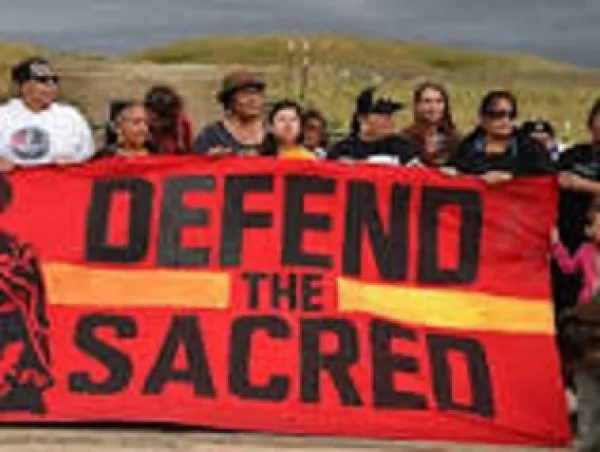WHO: Activists associated with the National Campaign for Nonviolent Resistance (NCNR) gathered at the Pentagon on September 26, 2016, following the three–day World Beyond War conference at American University entitled “No War 2016: Real Security Without Terrorism.” Some of the participants protested the ongoing US wars, the use of armed drones, and the increasing Pentagon budget. Twenty-one others attempted to deliver a petition listing the above grievances with a request for a meeting with a representative of Secretary of War Ashton Carter. The Pentagon police would not accept the petition or act on the request. Instead these First Amendment activists were arrested and charged with Failure to Obey a Lawful Order.
WHAT: For years, antiwar activists seeking a meeting have been sending their grievances to various branches of the government. However, government officials rarely respond to the communication or agreed to meet with activists who state, for example, that killer drone strikes violate the law. So on September 26, a group went to the Pentagon with a petition to seek a meeting. Some had their cases dismissed, and some paid a citation processing fee.
Nine of them, though went on trial before Magistrate Judge Ivan Davis. Paul A. Embroski, Special Assistant United States Attorney, called one witness, Lt. Anthony Dozier, a Pentagon Police officer. The nine defendants, in a hopeless cause, each testified. However, the conviction of all defendants was pre-ordained.
WHEN: Thursday, November 3, 2016
WHERE:United States District Court, 401 Courthouse Square, Alexandria, VA 22314.
WHY: Some of the defendants and supporters have appeared before Judge Davis in the past. It is quite evident he accepts the police testimony and disregards what the anti-war defendants say on the witness stand.
Prior to the trial, there was a hearing about the defense motion for extended discovery. One item received by the defense from the government was a video of the group’s attempt to engage in petitioning for redress of grievances.
The prosecution witness claimed the defendants blocked an entrance to the Pentagon and sat down in the entrance way. He also claimed the defendants were initially with the protesters in the “Free Speech Zone.” Under cross examination by pro se defendants Malachy Kilbride, from Montgomery County, MD, Art Laffin, Washington, D.C., and Manijeh Saba, New Jersey, the officer admitted he was not there when the activists asked for the petition to be delivered to someone in authority and that none of the defendants sat down. He could not tell the name of anyone prevented from getting into the Pentagon.
Note what was written in the police report: “protesters attempted to gain entry to the Pentagon.” The fictitious report continued: “None of the twenty-one individuals had proper identification to enter through the checkpoint . . .” It continues in this vein: “All twenty-one individual [sic] continued to block the entry point. Actually there was no blockade of the entry point.
As the defense prepared to begin its case, Kilbride asked the judge for a television to show the DVD received from the government. The judge indicated you have to seek such a request some time before trial. Kilbride had seen the video and informed the court that it confirms that the defendants didn’t obstruct any ingress or egress on September 26. Unfortunately, it was never shown in court as the judge indicated that with his computer he could not find the file. So a video which contradicts Dozier’s testimony was not viewed.
The following pro se defendants testified that they were never in the Free Speech Zone, did not try to enter the Pentagon and did not block any entry point: Eve Tetaz, Washington, D.C., Felton Davis, New York City, Nancy Gowen, Virginia, Laffin, Phil Runkel, Wisconsin, Saba, Rev. Janice Sevre-Duszynska, Kentucky, and Beth Adams, Massachusetts. Several activists, Adams, Saba and Sevre-Duszynska spoke truth to power on the witness stand and outlined our government’s misguided foreign policies. Sevre-Duszynska came close to being held in contempt. Judge Davis told the defendants that their testimony must be restricted to facts about the charge they are facing. All defendants, but Kilbride, admitted under cross-examination that they heard a warning from the police.
In Embroski’s closing statement, he emphasized that this is a simple case. The judge would later agree. As Runkel was prepared to present his closing statement, the judge warned the defendants this is not a platform to address alleged U.S. crimes. Runkel was emphatic he had a Nuremberg Obligation to petition Secretary Carter. Tetaz stated this is a country of law. She then is obligated to act when the government violates the law. Laffin concluded his closing with quotes from Martin Luther King and Dan Berrigan. He reminded the court that Dozier did not identify anyone who blocked a Pentagon entrance or the name of anyone who was blocked from entering. The evidence presented indicates that the defendants should be found not guilty.
It was not surprising that Davis accepted Dozier’s deeply-flawed testimony and ignored the evidence presented by the defendants. A conviction was inevitable. The defendants were ordered to pay $390 in fines and court costs to deter further attempts at First amendment activities at the Pentagon. Gowen asked instead for community service because of her financial situation. No, the judge said, as community service is not a deterrent.
In a very strange trial where the judge could not find a file on the prosecution’s DVD, each defendant was given a three-page document, prepared in advance, immediately after the judge left the bench. The document indicates a fine of $350, an assessment of $10 and a fee of $30. However the document is not signed by the court and does not show a due date. Because the defendants’ testimony was ignored, they are mulling over appealing the convictions.
--



